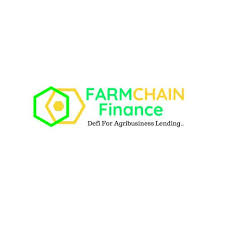Nigerian Farmchain Finance, a firm that was established by Stanley Golomo, is one of the companies that has the objective of bringing the benefits of blockchain technology to the average person.
The groundbreaking blockchain technology’s capabilities to solve problems that actually occur in the real world are its most essential characteristics.
During an interview with Technext, Stanley discusses the goals that Farmchain Finance has for the future as well as the difficulties that the company has faced thus far.
Despite having a background in civil engineering, Stanley Golomo has always been involved with network marketing on the Internet. In 2015, he tried his hand at the cryptocurrency market but was taken in by several fraudulent ventures.
“But those were also the beginning of my curiosity into what blockchain really is and how one can tap into the wealth of the blockchain. I started doing lots of research and self learning, connecting with other high level blockchain pros and enthusiasts in the country and that brought me to where I am today.”
The characteristics of immutability, transparency, and decentralisation that blockchain technology possesses are the aspects that most impress Stanley Golomo.
Read also: Kyosk acquires Kwikbasket to help in farm produce distribution across Africa
Golomo gives enlightenment on Farmchain Finance
In an interview with Technext, Stanley Golomo explained that the conception of Farmchain Finance was precipitated by a series of unfortunate events that occurred while he was aiding a group of cooperative farmers in their efforts to acquire financial backing from several government-sponsored agricultural loan programmes.
“After a series of efforts and meeting all requirements, the funds could not get to the famers. It was really a sad event for both I and the thousands of famers that were expecting the funds. But that disappointment and my knowledge of blockchain, led me to come up with the idea of farmchain finance.”
Now, Farmchain Finance is a Web 3 ecosystem that enables access to capital for the full farm2table value chain business by utilising blockchain technology. This is done in a seamless manner. The tokenization of assets is what makes these operations possible.
To put it another way, Farmchain Finance provides farmers with access to an international platform for crowdfunded lending. Tokenization allows users to acquire units of tokenized farms in the form of a non-fungible token (NFT), and the monies earned are used to empower the farmers. Users can acquire units of tokenized farms by clicking here.
All owners of tokenized versions of the NFT are entitled to a share of the profits at the conclusion of each farming season. Therefore, in the end, it is a circumstance in which all parties involved come out ahead.
Stanley Golomo characterises the path with Farmchain Finance as one that is fraught with difficulty. “But we are still here waxing strong. You know what it’s like building from this part of the world.”
According to him, Farmchain Finance has helped over one thousand farmers in a variety of ways in addition to providing financial assistance.“We have also helped over 50 farm products vendors get access to funding to help boost their supply strength, through our cooperative model that was launched last year.”
The project is mostly focused on the South-South geopolitical zone of Nigeria, but Stanley says there are plans to expand to other parts of the country and beyond.
Golomo speaks on Funding
Stanley Golomo says that Farmchain Finance has not gotten any money from Venture Capital. Instead, the team, family, and friends have paid for everything themselves.
“It has not been very rosy bootstrapping at all. Yes, in the near future, we will need funding for sure.”
In the next 2 to 5 years, his short-term goal for Farmchain is to help up to 5,000 farmers get access to loans and boost their output. In the long run, however: “I want to see Farmchain become the leading blockchain brand that is bridging the Gap between retail investors and farmers as well as farm produce vendors in Africa.”
In the end, Stanley Golomo and Farmchain Finance are working on some interesting things. One is the release of a product called RotaCash by Farmchain Finance Coop.
“This is a product to help us deepen our financial inclusion vision for the under-banked, enabling them to get access to zero interest loans to boost the business as well as instilling a savings culture for them. The product is still in better testing.”


